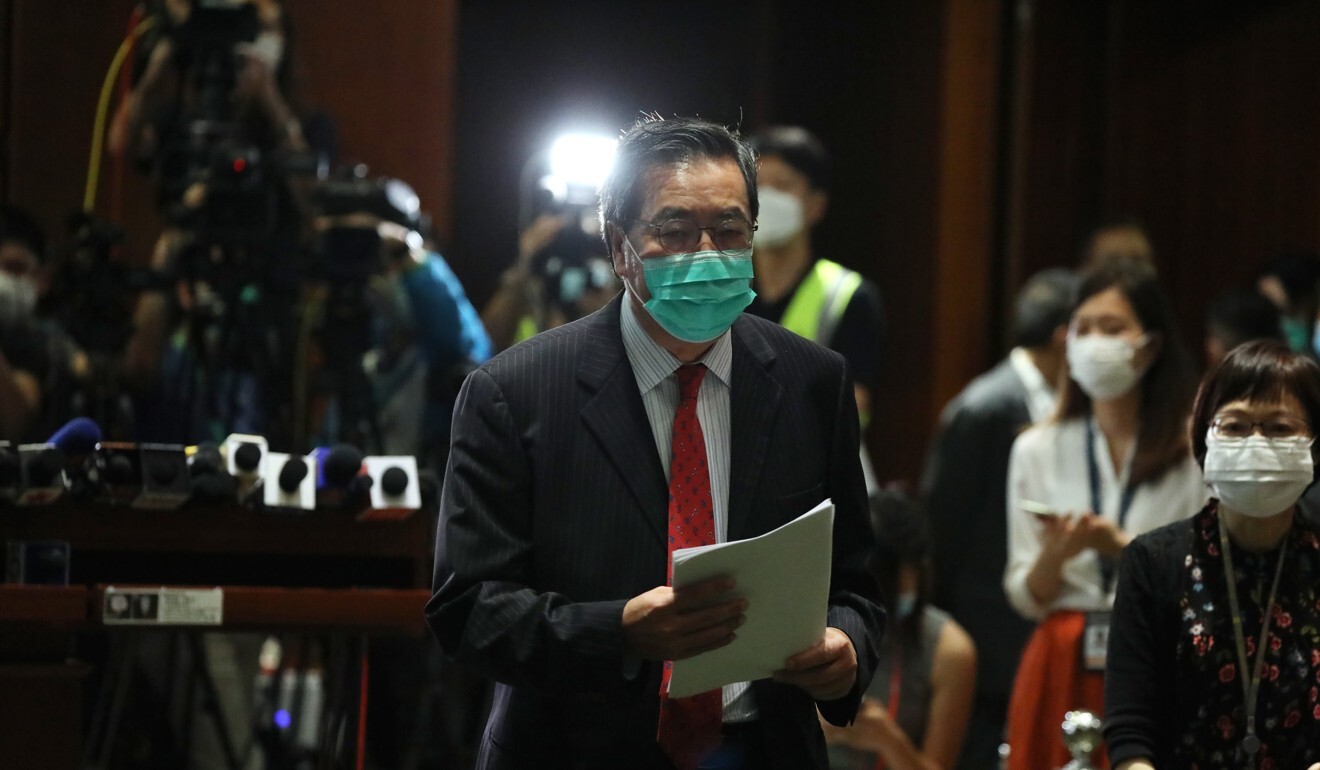
Hong Kong lawmaker calls on Legco president to investigate whether opposition’s stalling violates national security law
- Pan-democrats in the Legislative Council have sought to delay proceedings over the past two weeks with tactics such as forcing frequent headcounts
- But one lawmaker says tactics, while allowed under Legco rules, may violate a clause in the security law forbidding ‘seriously interfering’ in government functions
Alice Mak Mei-kuen, of the Beijing-friendly Federation of Trade Unions, made the appeal on Thursday as the legislature continued to scrutinise the Statute Law (Miscellaneous Provisions) Bill 2019, a piece of legislation deemed uncontroversial by the government’s allies and the first item from last week’s agenda.
A total of 12 quorum calls – a common tactic used to delay proceedings by forcing a headcount – were made by the opposition in the bill’s first hearing last week, and another 10 on Wednesday, according to the Legco secretariat. The same strategy was in full swing again on Thursday as a total of 15 calls were made. Nearly six hours have been spent on quorum calls in three days of meetings.

Alongside pro-establishment allies, Mak called on Legco president Andrew Leung Kwan-yuen to look into whether the opposition lawmakers had breached the Beijing-imposed national security law, introduced in June, which outlaws in broad terms acts of secession, subversion, terrorism and collusion with foreign forces.
She was specifically referring to Article 22(3) of the sweeping legislation, which stipulates that anyone found to be “seriously interfering in, disrupting or undermining the performance of duties and functions” of the local or central governments is guilty of subversion.
“Apart from the filibustering … some of them have also stood on the bench, which has interrupted the proceedings. Do these behaviours constitute a ‘serious interference’?” Mak asked.
“It is the obligation and responsibility of our president to make sure that our time is well used.”
When disruption equals ‘subversion’, what’s left for Hong Kong’s opposition legislators?
Lawmaker Martin Liao Cheung-kong, convenor of the pro-establishment bloc, also urged Leung to tackle the filibustering as he lashed out at pan-democrats for stalling the scrutiny of an “omnibus bill” which only involved minor changes.
In response, Democratic Party leader Wu Chi-wai said his peers – who decided to serve out the body’s one-year term extension, controversially decreed by Beijing after the government postponed this year’s Legco elections – would do all they could to block authorities from bulldozing through any “evil laws”. “Our tools are limited,” Wu said, in an apparent acknowledgement of the pro-establishment camp’s superior numbers. “We can only stall the proceedings by speaking continuously or making quorum calls … to protect the core values of Hong Kong.”

In 2017, the pro-establishment bloc passed a series of amendments to the Legco rule book to curb filibustering, including one that allowed fewer lawmakers to be present in the chamber for certain types of meetings. Following the rule change, stalling tactics such as forcing headcounts and maximising speaking time – neither of which violates Legco rules – were the only ones left at pan-democrats’ disposal.
Long a minority in Hong Kong’s legislature, pan-democrats for years have relied on such tactics – and the occasional stunt – as their only way of offering meaningful opposition to bills.

During Thursday’s meeting, Leung reminded pan-democrats on multiple occasions not to digress and to return to the subject of the amendment bill. He eventually decided to limit the discussion time so the bill could be put to a vote – a move the opposition bloc condemned as an abuse of power.
Nonetheless, the vote went ahead, with the Statute Law (Miscellaneous Provisions) Bill 2019 passing with 38 votes for and 18 against.
The bill will reduce the number of judges on Court of Appeal panels from three to two, with the aim of freeing up more manpower to tackle a growing backlog of cases involving asylum seekers.
While pro-establishment lawmakers backed the bill, pan-democrats worried it would undermine the fairness of the court.

